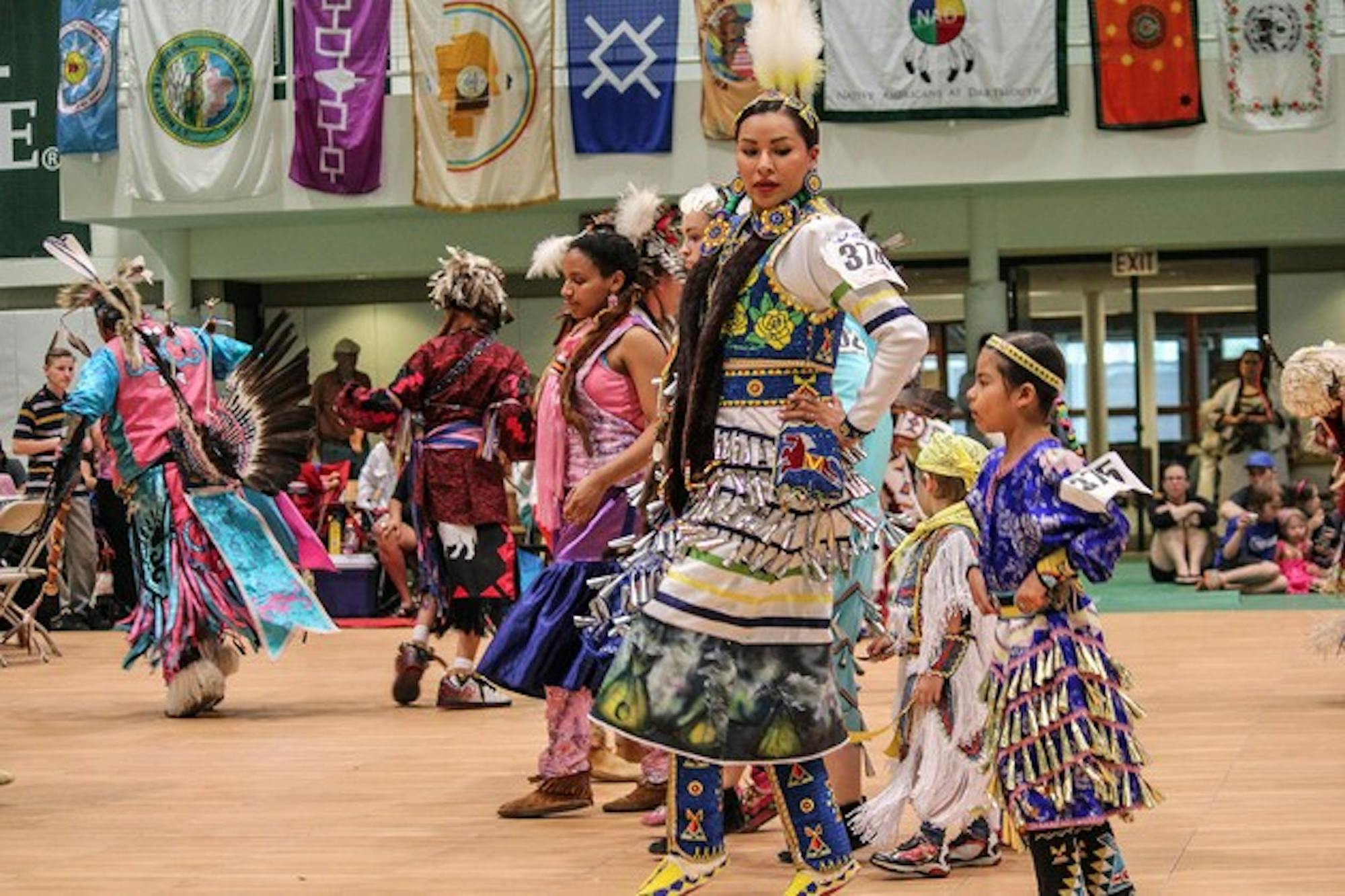Students, faculty, administrators and alumni attended celebratory events including panels and exhibits sponsored by the Native American studies program, a BADA reunion over Homecoming weekend and Greenways throughout the year.
Interim President Carol Folt stressed the importance of reconnecting Dartmouth with its heritage and founding mission of educating Native American students.
"You have students who talk to alumni who have seen Dartmouth at a different time," Folt said. "In every one of those cases, people say there has been evolution, there has been progress."
The Native American studies program hosted four major events, including a symposium during the fall term that gathered scholars and historians from major institutions in Canada and the United States to discuss Native American rights, sovereignty and political systems. In the winter, a panel of Native American alumni discussed their experiences with the College and its historical commitment to Native American education.
This spring, a symposium gathered four Native American authors in a celebration of literary contributions to their culture and identity.
The Native American studies program also put together a display in Baker-Berry Library's Brickway Gallery on Native American art and the development of the Native American studies program.
Since its establishment in 1972, the Native American studies program has expanded significantly, program chair Bruce Duthu said. The program now includes eight professors who teach over 25 courses, some of which are cross-listed with other departments including government, history, environmental studies and anthropology.
This "intellectual cross-pollination" is an opportunity that enhances Dartmouth's liberal arts emphasis, Duthu said.
"We see the 40th anniversary of the Native American studies program as a successful means of engagement between societies," he said. "It's a mark of strength and collegiality that we can share these resources across various disciplines."
Duthu said that the President's Office played a major role in promoting the program's celebration.
"The gravitas it added to have President Folt's support absolutely contributed to the success and attendance of our programs," Duthu said. "We were fortunate and very, very pleased to get funding support from the President's Office."
BADA celebrated its 40th anniversary by welcoming over 200 alumni to campus during Homecoming weekend, president Ellis Rowe '74 said. The reunion included panel discussions, mixers with students and an exhibit at the Hood Museum.
BADA's mission includes supporting a network of African-American students, faculty and alumni through mentoring. Membership has expanded from 300 in 1972 to over 3,300 today.
While BADA's role on campus has evolved over the past 40 years, it maintains much of its founding goals and objectives, Rowe said.
"I think it's great that we have been consistent over the years," he said. "But we're also always trying to see how we can make this new and exciting and challenging."
Rowe said he is proud of the College's commitment to BADA.
"It's a significant acknowledgement that the senior leadership cares about its alumni and students," he said.
Rowe added that there are areas for improvement, including greater student-faculty engagement and more faculty of color.
Faculty of color represented 15.3 percent of the total faculty in 2010.
Greenways, a weekend-long celebration of coeducation in April, brought over 600 alumni back to campus for panel discussions as well as keynote addresses by Women's National Basketball Association president and College trustee Laurel Richie '81 and comedian Rachel Dratch '88.
Planning for Greenways began over two years ago and was a joint effort between the Alumni Relations Office and the President's Office, vice president for alumni relations Martha Beattie '76 said.
Although many of the 350 students who registered for Greenways did not attend the panel discussions, Greenways attracted far more students than previous coeducation celebrations, Beattie said.
"This partnership between the President's Office, Alumni Relations and the students and faculty was an expression of the fullness of the community," Beattie said. "The diversity of the panelists and the attendees was a celebration of 40 years of really important and powerful change."
Folt said that Dartmouth's progress over the last 40 years reflects larger changes in American society.
"Students have been very active in the last decade about social issues," she said. "We want to be not just reflecting society but leading society to build the most dynamic, inclusive world."
Beattie said that Greenways was a commemoration of the progress that BADA and the Native American studies program have made.
"The real takeaway is what a great privilege it was to celebrate these converging milestones with the Dartmouth community," she said.
Alumni leadership director Lynne Gaudet '81 said these anniversary events celebrate a more integrated community.
"Forty years later, we are stronger because we have a more blended community," she said. "You can't be strong without understanding all the perspectives and experiences and lifestyles that people have had, and sometimes being exposed to all these different cultures changes your own goals and paths."




